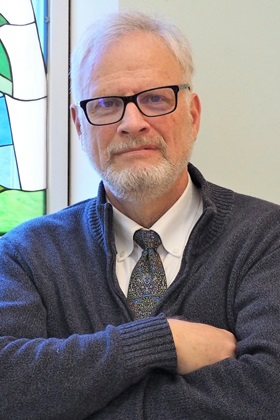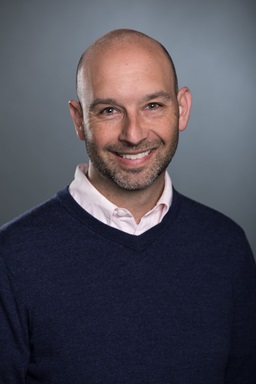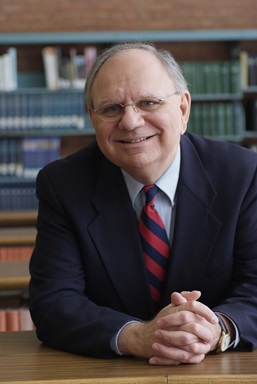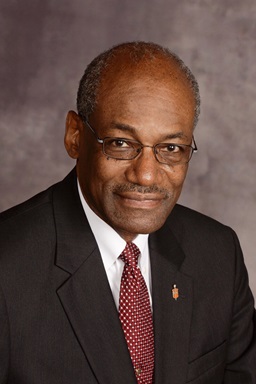
Photo by Joanne Rich.
On July 10, 2018, one of my parishioners sent me a link to a post on the Facebook page of the New Jersey State Police. “You have a twin!” she texted. Prominently on display were photos taken of me making an April 16 deposit at the Wells Fargo ATM where I bank in Parsippany, New Jersey – the town where I have served as a pastor for 30 years. The post sought the public’s help in identifying me, asserting that I had deposited fraudulent checks.
In a panic, I contacted the detective, informing him that I was the person in the pictures, but that some mistake had been made. I emailed copies of the legitimate checks I had deposited on that day, assuming this would demonstrate my innocence. I explained that I was a pastor and my reputation as a person worthy of trust was endangered by these online postings.
Commentaries
The next day the detective indicated that the bank’s security department halfway across the country was standing by their initial determination that my photos were those of the culprit. He had, however, sent them the information regarding my legitimate deposits and asked them to review the matter. I found this all extremely unnerving, but when weeks passed without hearing from the detective, I assumed they had figured out their mistake.
Finally on Sept. 5, 2018, the detective called. He casually invited me to come down to the barracks of the New Jersey State Police so they could “wrap things up” with the investigation. Hoping to get answers regarding how this egregious error had occurred — and confident that I had nothing to hide — I went without a lawyer.
When I arrived, two detectives led me into a small room and proceeded to interrogate me. ATM photos of myself were laid out in front of me. “Are these pictures of you?” one asked. Once more I confirmed that they were. The pictures — each with a handwritten fraudulent check number — proved my guilt, they said definitively. “No!” I insisted. “Somebody at Wells Fargo made an error with their technology.”
The detectives told me no such thing had ever happened before, saying they would be interviewing other people, with the implication that it would be far better for me to come clean now than to have others at some later point identify me as the thief.
As I continued to insist that Wells Fargo had made an error interpreting their technology, one of the detectives responded by saying, “Let’s imagine that this does go to trial and we get Wells Fargo’s technology expert on the stand and he says ‘You’re guilty.’ Who do you think the jury’s going to believe?” I was to understand that the infallibility of the technology expert would make it foolish for me to continue to claim my innocence.
I told them that my reputation was at stake, and that if a trial was required to prove my innocence, so be it. Then they informed me that they were arresting me for third-degree forgery, a crime punishable by three to five years in prison and a fine of up to $15,000. All they had really wanted from me that day, they indicated, was to get me on video confirming what I’d been telling them from the start: “Yes, those are my pictures,” and, “Yes, I was in the bank that day.”
I hired a lawyer and tried to tell myself there was no way I could be convicted of a crime I didn’t commit. In the months to come, the state police dragged their feet in providing the information they gathered in their investigation. As a result of their delay, it took three appearances in court until finally, on Jan. 16, 2019, the judge dismissed the charges.
When at last we saw the detectives’ file, there was a mountain of evidence pointing away from me that I had not been told about in my interrogation. The only evidence of my supposed guilt was the determination by Wells Fargo’s security department. To this day, I do not know how this all happened. What I do know is this: It is one thing to see countless interrogations on TV. It is quite another to be in the position of an actual suspect being interrogated.
My experience left me intensely aware of how fortunate I am. I had the resources to hire a competent lawyer. And I had never previously been arrested, making me less susceptible to pressure to take a plea deal for fear of the lengthy prison sentence awaiting a person with multiple offences.
Editor's note
What about people who find themselves in those interrogation rooms without my advantages? According to the FBI, in New Jersey alone, 281,631 persons were arrested in 2017. The vast majority required public defenders, many of whom were spread too thin in their caseloads to provide a quality defense. Over 90% of the accused pleaded guilty. How many were actually innocent but felt compelled to take a plea? I caught a glimpse in my interrogation room of how intimidating the threats of detectives can be, particularly when they are acting on supposedly irrefutable technology from one of the largest banks in the country. With two detectives grilling you, it is easy to lose the capacity to think straight.
I am in the process of suing both Wells Fargo and the state police. As a result, reporters have been interviewing me about my experience. Intrigued by the angle of my being a pastor, two particular questions have come up more than once. The first: Has this been a test of my faith? No, I’ve said. If Jesus was falsely accused and countless other people have suffered far worse than me from false accusations, who am I to imagine my faith should make me immune to such injustice?
When I reflect on what happened to me in terms of my faith, I see God’s grace allowing me to find in this distressing experience a greater empathy for those less fortunate than myself. I have been given the opportunity to shine a little light on what others suffer in our flawed criminal justice system.
The other question I get is: Can I forgive those who wronged me? Yes, I say. I can forgive the individual people who work for Wells Fargo and the state police whose actions caused me harm, though I expect them to acknowledge and take responsibility for their misconduct.
The Apostle Paul reminds us that “our struggle is not against flesh and blood, but against the rulers, against the authorities, against the powers of this dark world…” (Ephesians 6:12). One of the places where these evil powers take hold is in institutions. Demonic cultures take hold that over time flesh and blood individuals find hard to resist, leading them to do things that damage people.
What is it about the culture of certain law enforcement departments that lead police officers to consider it acceptable practice to insinuate they are in possession of more compelling evidence than they in fact have in order to pressure vulnerable people to confess to crimes they very well may not have committed? And what is it about the corporate culture of Wells Fargo that resists tooth and nail admitting when they have done harm, only acknowledging their sins when their profit line is threatened?
My experience taught me that as people of faith these are questions we need to be asking.
Edwards is pastor of United Methodist Church of Parsippany, a congregation in Morris County, New Jersey. News media contact: Vicki Brown, news editor, newsdesk@umnews.org or 615-742-5470. To read more United Methodist news, subscribe to the free Daily or Weekly digests.
Like what you're reading? Support the ministry of UM News! Your support ensures the latest denominational news, dynamic stories and informative articles will continue to connect our global community. Make a tax-deductible donation at ResourceUMC.org/GiveUMCom.



